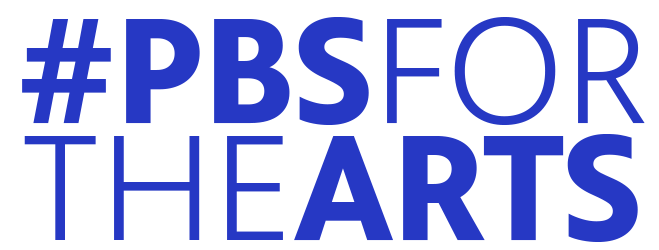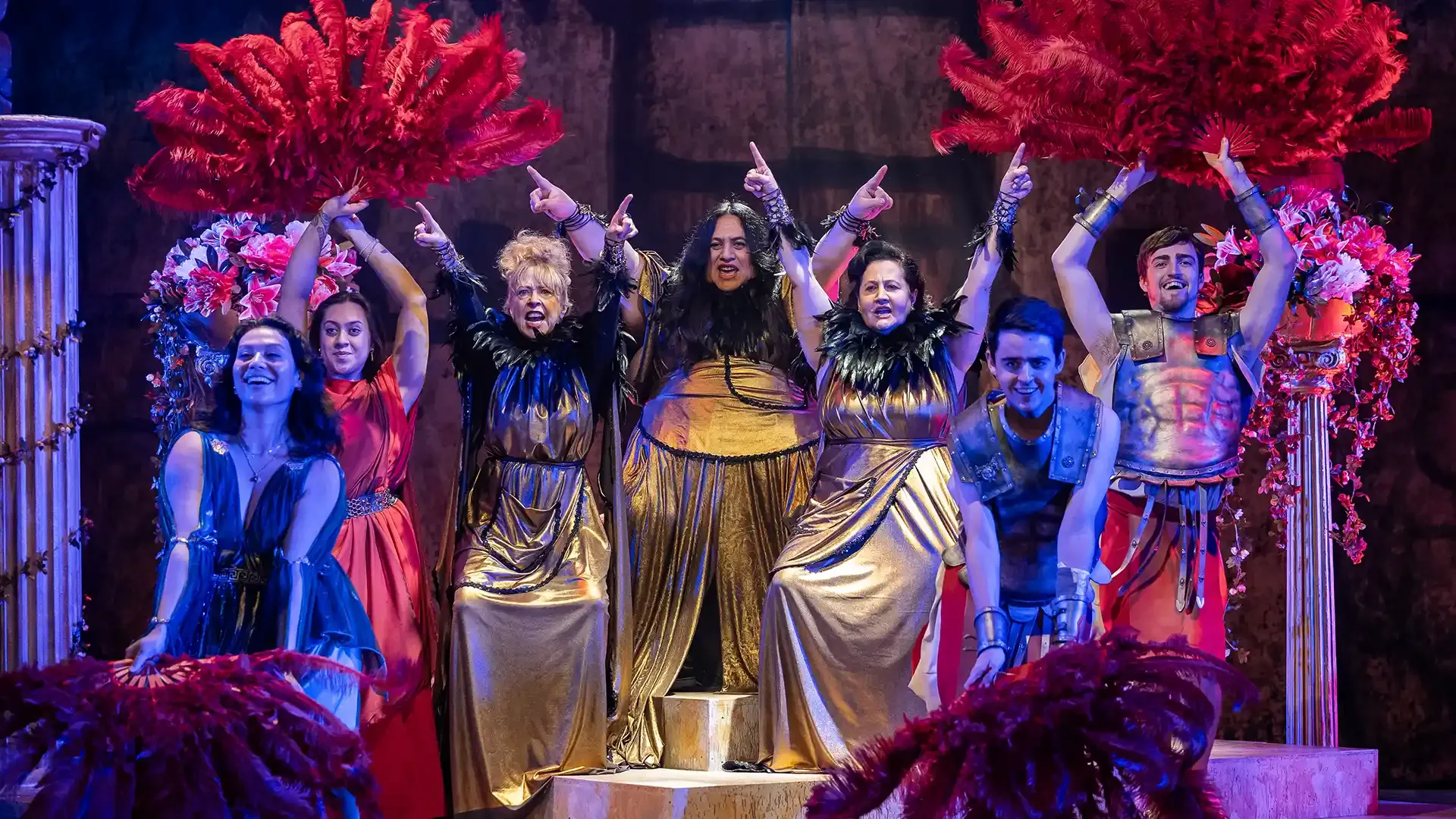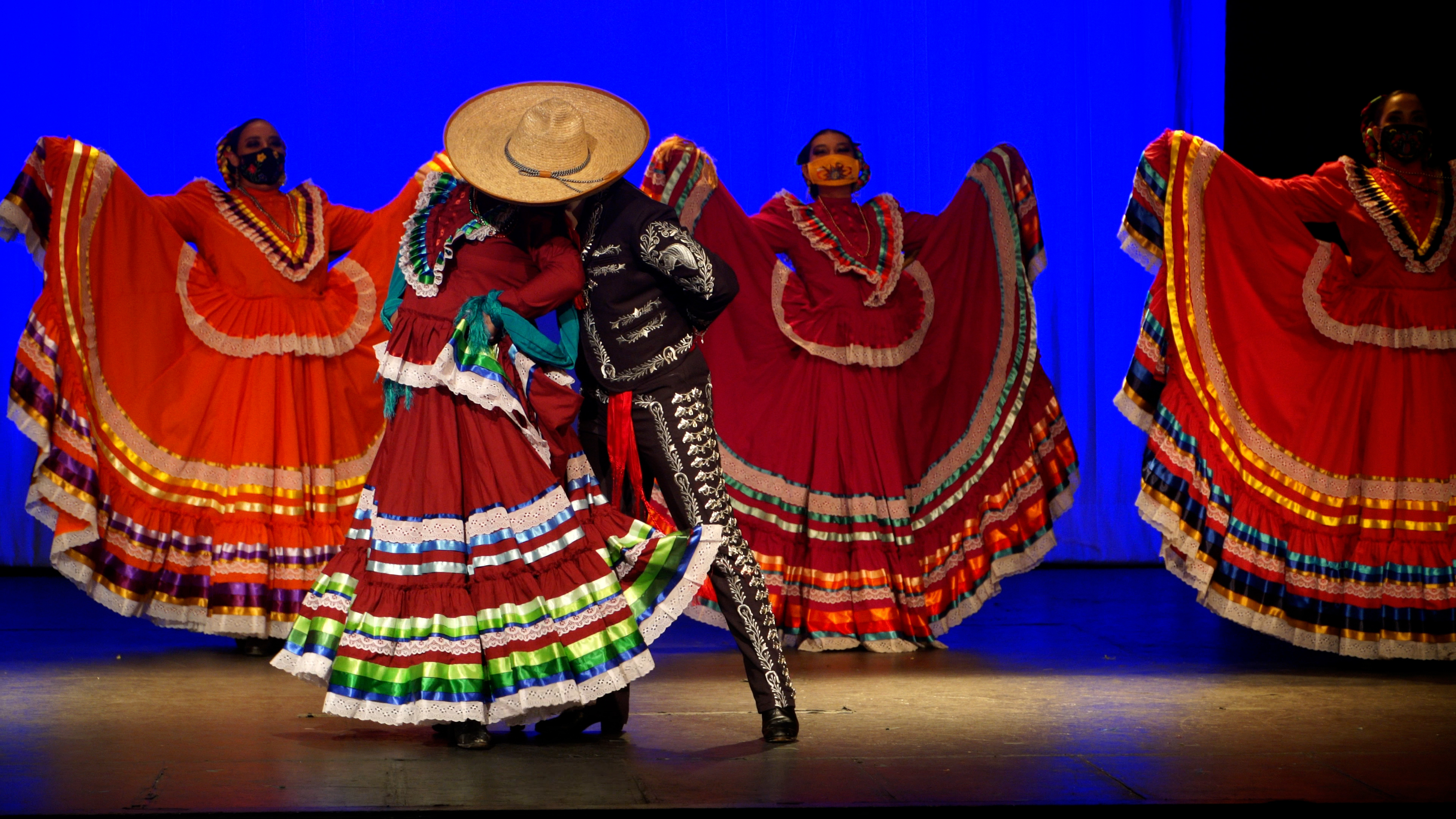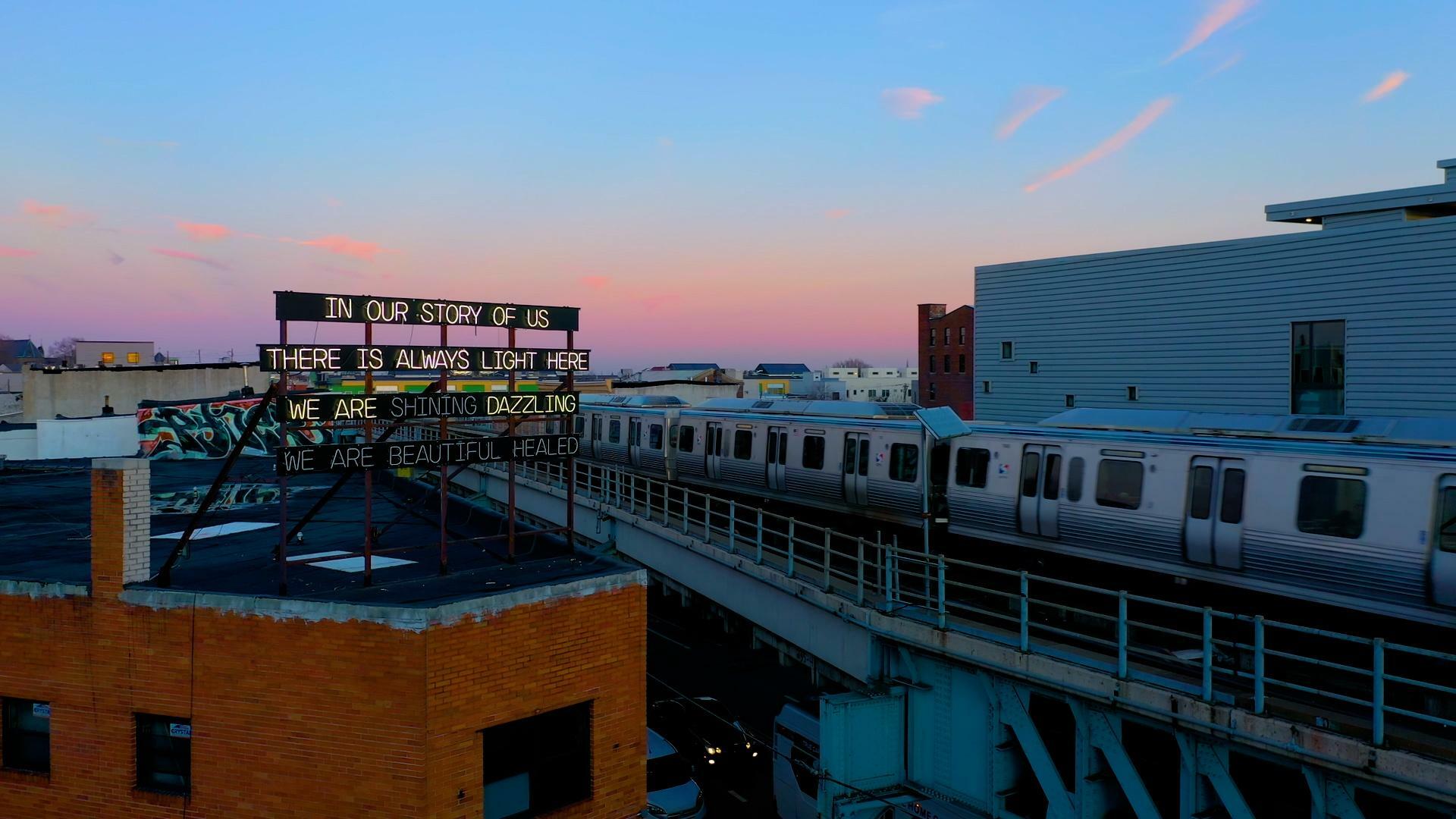Julia Bullock is a soprano legend in the making. Her carefully curated performances and thoughtful consideration for audiences put Bullock in a unique position as a classically-trained vocalist. In 2019, she completed a residency at the Metropolitan Museum of Art called “History’s Persistent Voice” featuring compositions by Black American artists, and in 2021, Musical America honored her as an Artist of the Year and Agent of Change for her social activism in the arts. During the global lockdown, Bullock spent time at home in Munich, Germany with her husband and conductor, Christian Reif, performing virtually for friends and family and then larger audiences, including NPR’s Tiny Desk Concert At-Home series. In July, Bullock came to the United States and performed for live audiences for the first time in 18 months. The Aspen Music Festival is her first stop in a string of scheduled performances for the next year, which includes the Hollywood Bowl and the Royal Opera House.
Bullock took a brief break from preparing for her first full-length recital in two years to speak with #PBSForTheArts about the thrill of performing live, her musical influences, and a long-term career beyond performance.
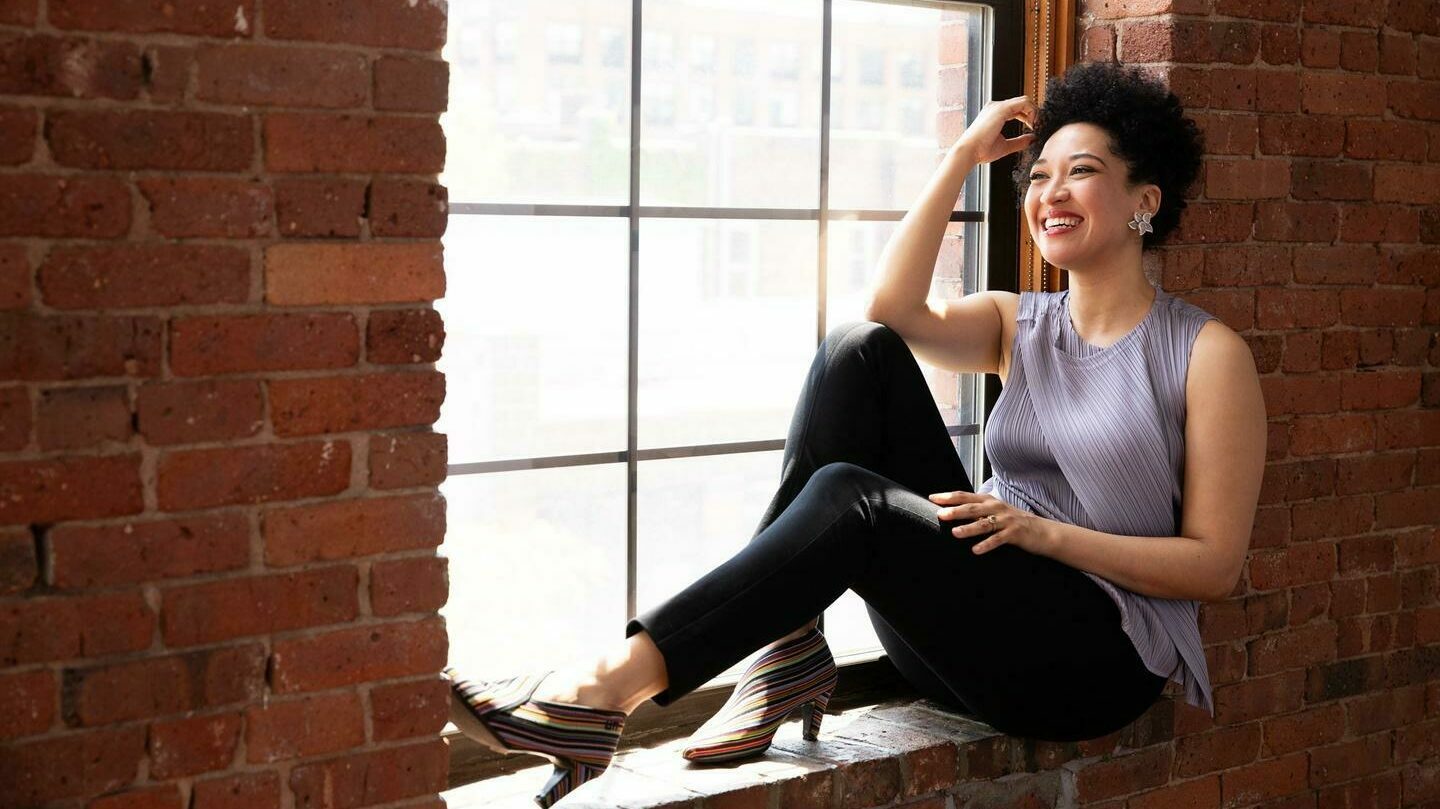
How does it feel to perform for a live audience again, currently in an outdoor space like the Aspen Music Festival?
This is my first time back in the United States performing. Well, it's my first time back in the United States for 18 months. There's a part that's really wonderful. I have expectations of coming home— to do very well and cherish these moments. It's been a year and a half of working in a very different way and finding a way to translate my craft via video or audio recording that still feels valid and carries great energy. It is an adjustment. Opening night was so beautiful though. There's nothing to replace the physical experience of having musicians surrounding you from all sides and the audience in front of you, and in this case on all sides, and the silence that's held. It was special. But I also had a terrible migraine for three or four days leading up to it! [I] really want to celebrate these things, [but] this is real life. Maybe that's one nice thing about this year. I feel some veils have been lifted. There's an allowance for all of us to be a little more human and be as we are together.
As you travel around to different cities, do you adjust your work depending on the location or audience?
No, not so much. My values as a creative person have gotten more established. Clarity of communication, transparency, directness, immediacy, and openness and availability [are] values that I have as a human being, and my performance style, regardless of the repertoire. Maybe as I start getting back into live performances, I will have a slightly different sense of which pieces carry more resonance in particular places over others. I do feel that there [are] universal questions, social topics, cultural topics, and a different level of accountability and responsibility across the world, at least within the arts sector. My job now is [to] pick the places where I have been invited or feel comfortable.
I'm hesitating a little bit because there have been many, many, many circumstances over the year where I've had to distance and no longer associate myself with certain organizations and people because of things that have happened or things that were revealed, which has been disillusioning in one respect. I'm so grateful that I had the time to see what was and is not working and not [engage] in relationships that aren't serving a purpose. I'm excited about the years coming up. I'm thrilled that I'm not just being invited into environments as a vocalist and performer, but all the other aspects of my creative life are given some space to breathe and to expand.
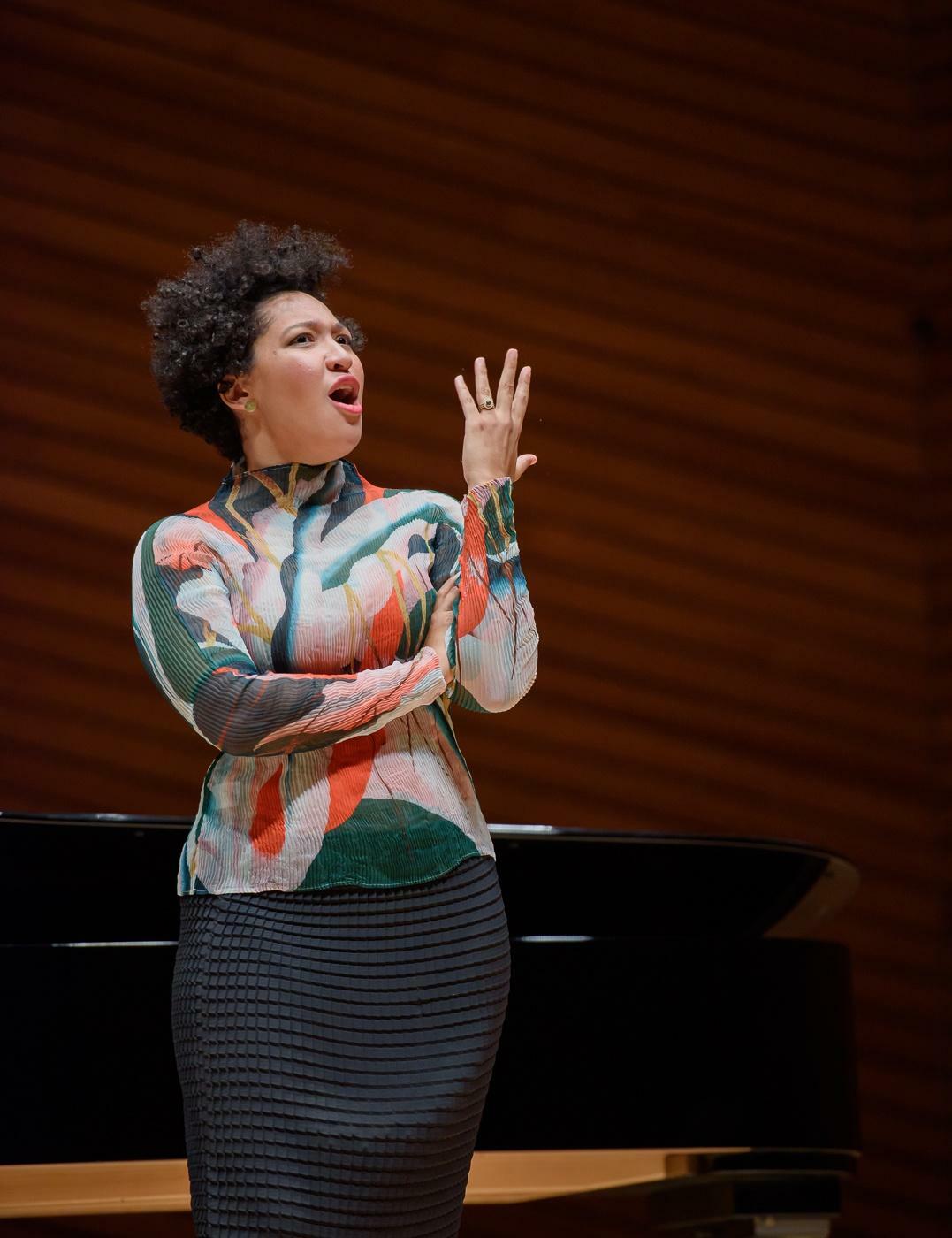
In the past year, you were able to focus and work on that in isolation. How did you stay motivated?
I feel very lucky that music has remained consistent. I've been able to be at home with my love partner, but also one of my great musical partners and husband, Christian Reif. Early on in the pandemic, we were making music together in the evening for ourselves. I [thought] maybe we should just record and share them with friends and family. It's a wonderful documentation of those months and what I was certainly going through at home. Having the invitation to offer a Tiny Desk with NPR came out of [our] need to continue sharing music from home and finding a creative outlet.
I definitely had days of not wanting to sing at all and not engage with the outside world. [I engaged] in a lot of people's social media content. It started to feel like a legitimate space. Like [discovering] all the artists that I was not aware of because I was working constantly and on the road. I just feel like my whole community has opened up in a different way.
The virtual aspect of the past year created another access point into classical music for younger and newer audiences in that way. Have you experienced a new world of audiences because of your online presence and performance?
I have. I guess that gets back to your earlier question about changing [myself] or [my] message depending on where [I am]. It's really neat to see. The work that I do translate[s] into this space very beautifully. I'm just living my life and sharing a bit more of it online. I think that that's one thing that happens in social media. I feel there's a real intimacy that can happen if that medium is embraced in a certain way. In live performance, there's this aspect of distance. Not everyone can be a foot from a performer. That's part of why I love popular music or recordings. In the online environment, I don't have to wait for a large video team to do that. I can turn on my phone and go for it.
Support your local PBS station in our mission to inspire, enrich, and educate.
Social media also opens up this realm of social activism, which is a large part of your work. You've been named an “Agent of Change.” What is it like navigating classical music, by addressing issues of equity and access, in what could be considered a staid institution?
I feel that the act of making music does feel to be a socially conscious act because when we decide to put aside time, to be present with each other in a group environment, that's a social aspect. Music allows us to become more aware of not only who we are, but of the people who are around us.
So I spend most of my time researching, listening, reflecting, and seeing if the things that I'm experiencing as an individual [have] resonance outside my experience. I'm looking for material that is timeless, speaks to the moment that we're living in, but also has expensiveness. I hope that every human being on the planet feels that they can be an agent of change because that is just about having agency and having the presence of mind to voice one's concerns, disappointments, and also dreams. Most of the artists who I love carry that same kind of awareness and willingness to engage. I'm just following in the legacy of the artists who have come before me.
Who are some examples of that timeless material that you feel connected to — from growing up or more contemporary artists?
Jimi Hendrix, Janis Joplin, Bob Dylan, Laura Nyro. Moving into more classical singers, there's Regine Crespin, Frederica von Stade, Cecilia Bartoli, Renee Fleming. I didn't grow up listening to classical music other than like, “Peter and The Wolf.” While I was introduced to some of these great classical singers, I was listening to all of these great folk singers and psychedelic music. I mean, Pink Floyd, I just wore out that record. My mom had so many LPs at home. Also, Nina Simone and Billie Holiday. These inimitable voices were satisfying themselves in their artistic journeys, but they were also very much conscious of pushing the art form forward. I love the idea of embracing that and not posturing as a classical singer in one particular genre for a particular audience.
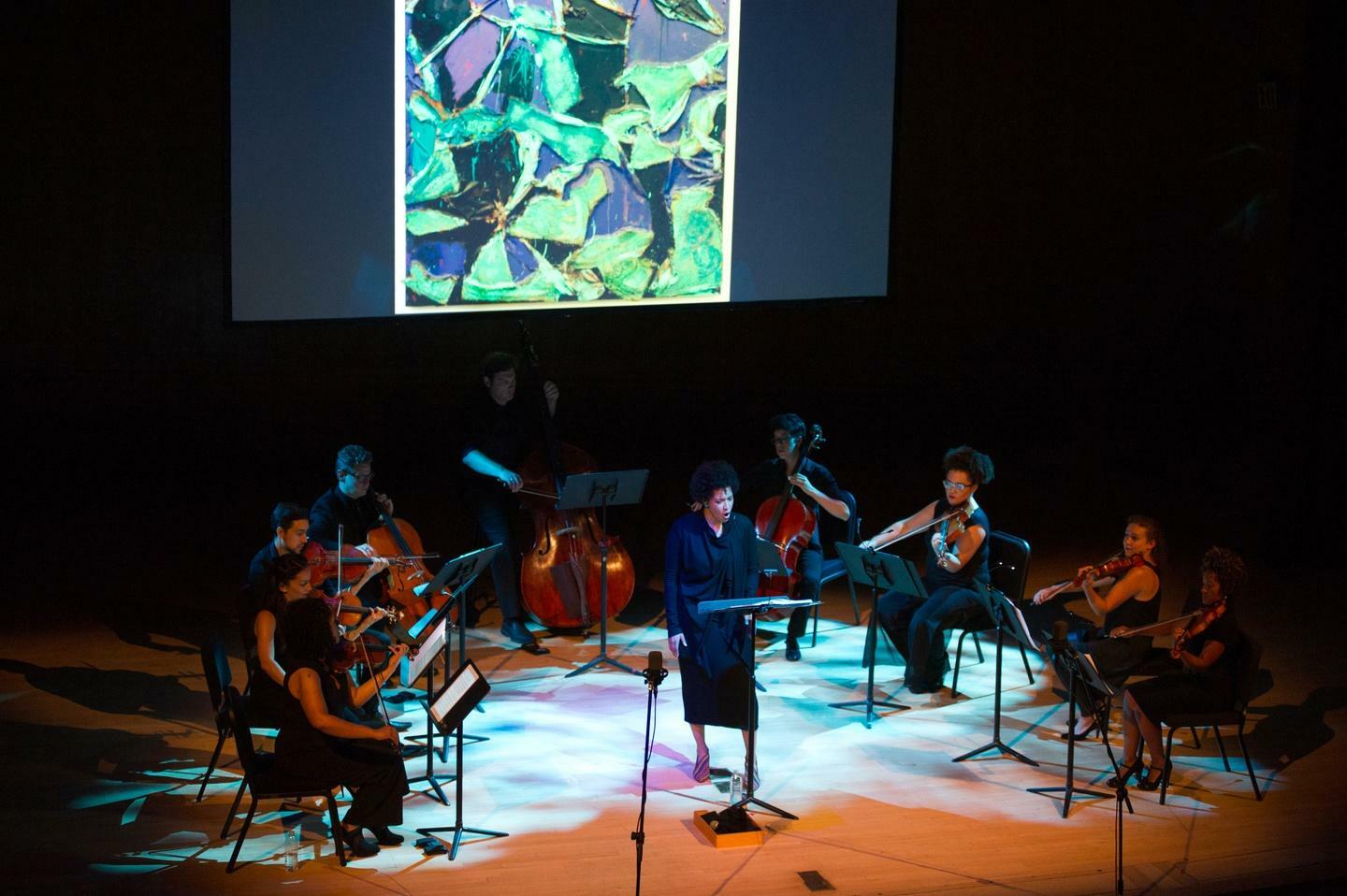
You are working in this strong tradition within classical music, but also music in general, of responding to the moment. I think what distinguishes you from other artists is your careful consideration of your performances. I'm even thinking of your Met residency. There is a tradition in music to use contextualization.
Maybe it's because I didn't grow up with this music in my life, so it's not something that I could ever take for granted. First, I'm delighted by the material that I perform. I'm also surprised and moved by the echoes of themes that arise as I am researching and becoming more acquainted with various pieces of music or poetry. I want to find a way to share that explicitly so that there's some point of entry.
I think that one of the things that gave me anxiety when I was becoming acquainted with classical music is that a lot of the pieces are offered in multiple languages. If you don't know what is being said on stage, you can appreciate some of the musical material, but it's half of the experience. The composers are inspired by the words. With the Met residency, I was really taking my time to understand [the] environment. What is the history of the Met? How does that knock against my own history? What tensions were there? It's coming from a real place of curiosity. That's where all that contextualization comes from. Fingers crossed that I'm healthy enough to continue on this path and at this rate. I hope that it will make sense and surprise and delight anyone who's coming to see and hear.
Note: This interview has been condensed and edited for clarity.
Follow Julia Bullock on Instagram and her upcoming performances on her website.

The best of PBS, straight to your inbox.
Be the first to know about what to watch, exclusive previews, and updates from PBS.
